Sharqiya is the name given to the harsh wind that sweeps across the Negev, in southern Israel. It blows nobody good, but people learn to put up with it all the same. There are no other alternatives, one imagines.
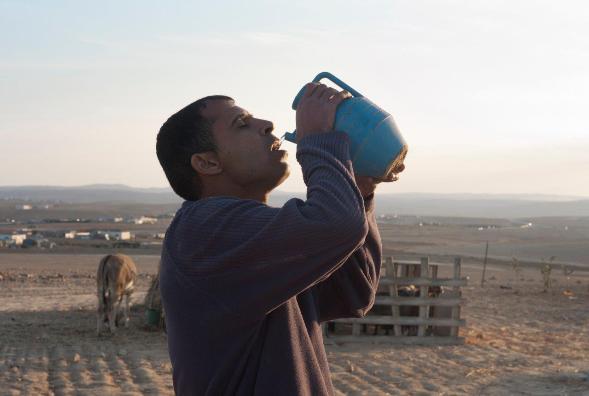
A new film of the same name, directed by Ami Livne from a script by Guy Ofran, presents a deliberately understated perspective to a man-made problem in the Negev: the tasking question of what to do with the unrecognised Bedouin villages built within “Jewish” planning areas of the Negev. Like so many other things in Israel, debate concerning the issue has been reduced to zero-sum dimensions. What Sharqiya presents is the human dimension to the complicated, maybe even intractable reality of a marginal existence.
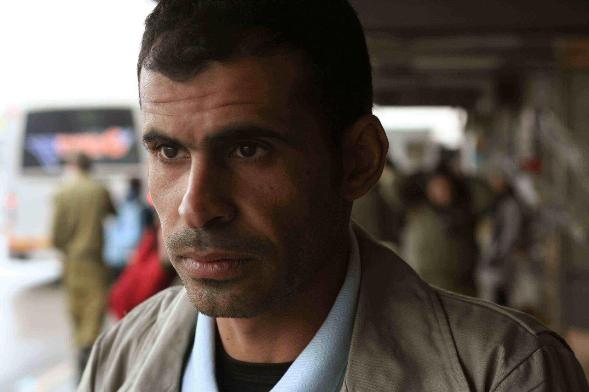
Kamal (Ednan Abu Wadi) is a security guard at Beer Sheva’s Central Bus Station. He gets along well enough with his colleagues, mostly students earning a bit of cash on the side. There is a curious passivity about him. When he asks to swap work stations and is turned down, he seems sulky rather than angry. We see him at his most animated when he is tinkering about with cast off electronics. It very much seems that he’ll sacrifice most things for a quiet life.
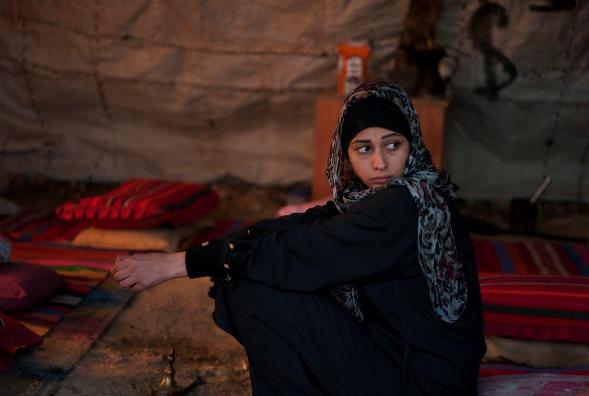
But that he won’t be granted. Kamal, a Bedouin, lives in an unrecognised village – in truth, an isolated outcrop of shacks, a pen for goats alongside – with his brother Khaled (Adnan Abu Muhreb) and Khaled’s wife Nadia (Misa Abd el-Hadi). Khaled has traditional expectations: he doesn’t understand what his wife expects to get out of her further education studies, he disapproves of his brother’s past army service and is generally suspicious of the Israeli State and all its works. Kamal, for his part, is an army veteran. Not that this seems to be standing him in good stead. They’ve just been served with an eviction order, and the received wisdom is that the promised compensation is scant replacement for what they consider ancestral land. “We’ve been here since my grandfather,” Khaled objects. “Since before ’48.”
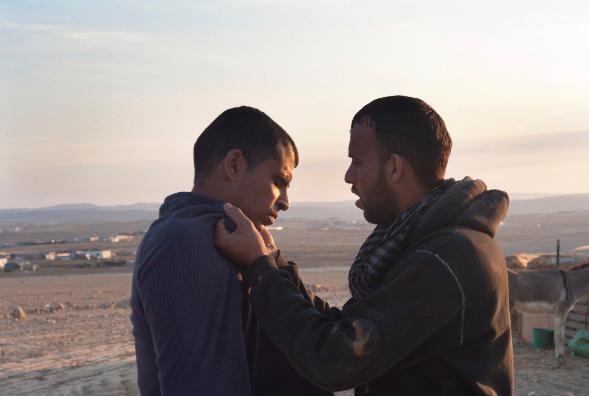
Kamal prefers consensus where Khaled favours confrontation. But once it becomes clear that the threatened eviction cannot be headed off, he is roused into a response. Security is of the utmost importance at the bus station. It is the perfect location for making a statement that will draw everyone’s attention to the plight of the overlooked Bedouin. A statement with perhaps deadly consequences…
Sharqiya trades primarily on the virtue of restraint. It doesn’t force unlikely dialogue into the mouths of its principals (as it happens, there is very little dialogue). Nor does it seek to make cheap political points out of the unusual yet entirely plausible storyline. It’s up to the audience to form their own impression from the bare bones that the filmmaker provides. It is effective, at times discomfiting. No doubt different people will come to different conclusions about the matter of the transient Bedouin lifestyle, but at the very least Sharqiya gives a human face to an issue more often than not rooted in political abstractions.
First as tragedy, the second as farce. Whilst Viva La Libertà is a very different film from Sharqiya, they drink from the same well of political pessimism. But whilst Sharqiya is a joyless affair, Viva…is passionate.
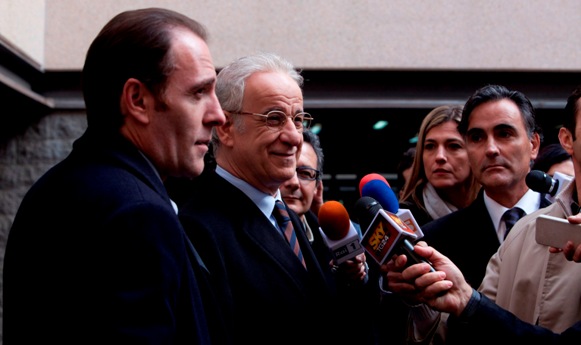
There’s no more fun to be had of making jest of the Italian political dispensation. Certainly, Enrico Olivieri (one half of an outstanding performance by Toni Servillo) seems to have long stopped having fun himself. The leader of the main Italian opposition party, his job ought to be to simply wait for the government to finish themselves off comprehensively. But the plebiscite, not unreasonably, want something more to rally round, a message of optimism and hope. (Personally, I have a thing about the place of sugar-coated messages in contemporary politics. Take Obama, for example. But that’s perhaps for another time and place.) All that said, Enrico is not the man for the job.
It’s not entirely clear whether he is motivated by spite, or fear, or simple fed-up-ness – or a combination of all three – but Enrico does a flit by the light of the moon, leaving a cryptic note for his long suffering aide Andrea (Valerio Mastandrea). Andrea, well meaning but floundering helplessly at sea, looks for the best way to cover up his errant master’s tracks until he returns from whence he has wandered. In desperation, he visits Enrico’s estranged brother Giovanni for help. Giovanni (the other half of Toni Servillo’s magnificence) is a philosopher with a…um…delicate mental disposition. He has just been released from an asylum into the tender care of the community, and is prone to bursts of exuberance. One such burst ends up in him being mistaken by a political journalist for the missing leader of the opposition. Given the alternative – own up to the fact that no-one actually knows where said leader of the opposition actually is – and with an election campaign waiting to be fought, Andrea succumbs to the hair-brained inevitable…
Viva La Libertà has a simple message: to yourself be true. Giovanni certainly injects much needed passion into matters political. It is all implausible fun, but with a serious point not far beneath the surface. Politicians – or their clones – aren’t usually literate enough to quote Brecht at length during a political rally. But then, neither are we the plebiscite attentive enough to appreciate this for what it is. Do we need luck?/So you ask!/Expect no answer except your own. Enrico, meanwhile, has taken refuge with Danielle – an old girlfriend, a script editor now living in France – and her family, an opaque film director and their percipient young daughter. He too wants to be true to himself, but needs help along the way.
Strongly reminiscent of Peter Sellers’ last film, Being There, Viva La Libertà is more an observation piece than fully formed narrative. It does suffer a little for this, with enigmatic entrances and exits amongst the cast. But it is hard to hold these against what is a goodnatured and very thoughtful film.
Sharqiya (2012)
Directed by Ami Livne, Written by Guy Ofran
Starring Ednan Abu Wadi, Misa Abd el-Hadi, Ednan Abu Muhrab
85 minutes, Arabic and Hebrew, w. English subtitles
Viva La Libertà (2013)
Written and Directed by Roberto Ando
Starring Toni Servillo, Valerio Mastandrea, Valeria Bruni Tedeschi
Italian and French, w. English & Hebrew subtitles.





